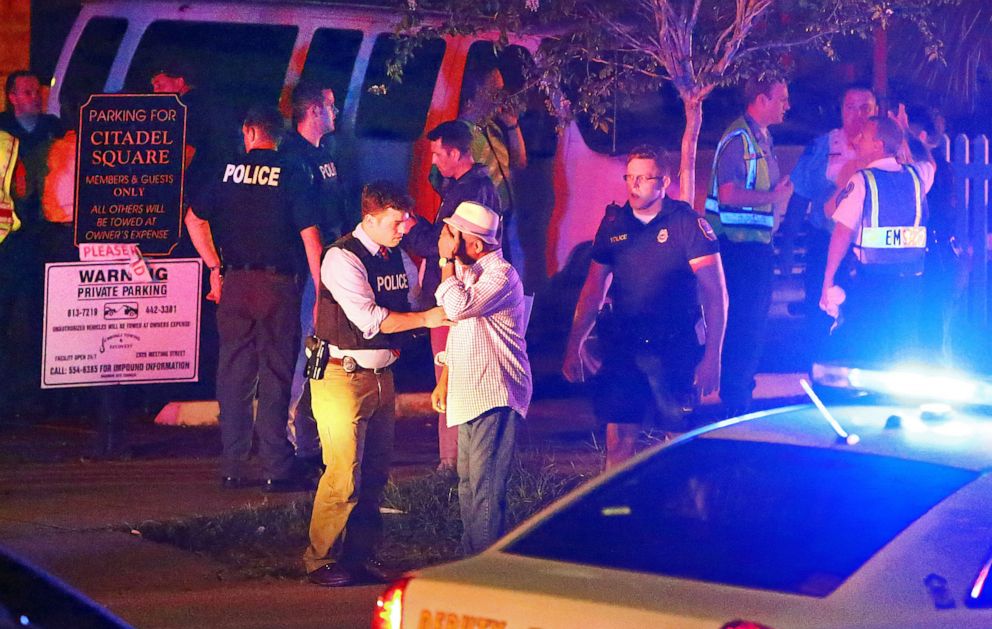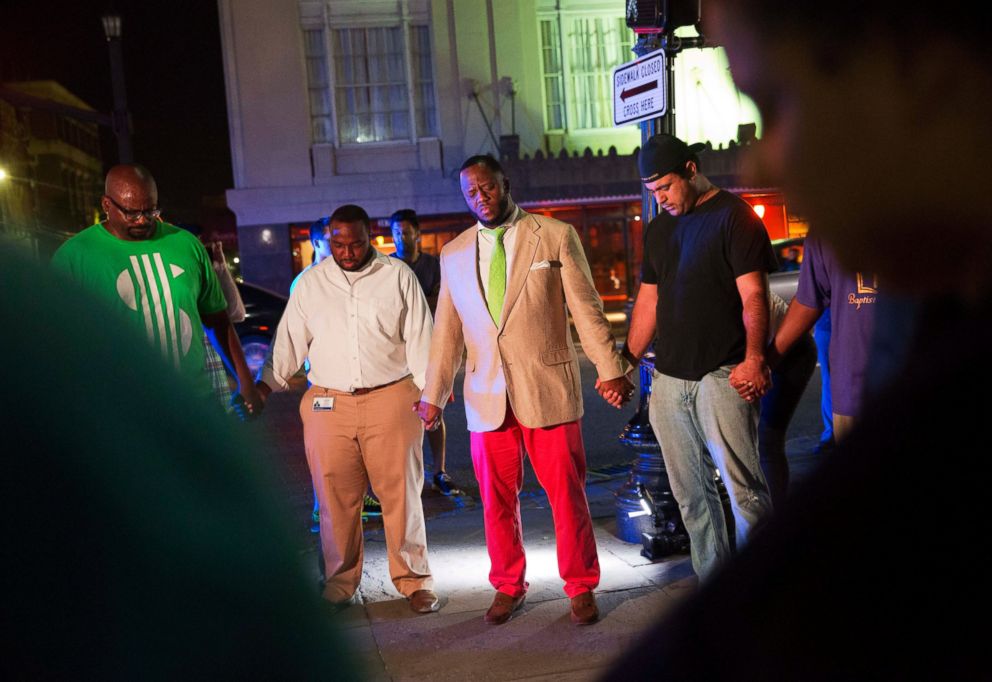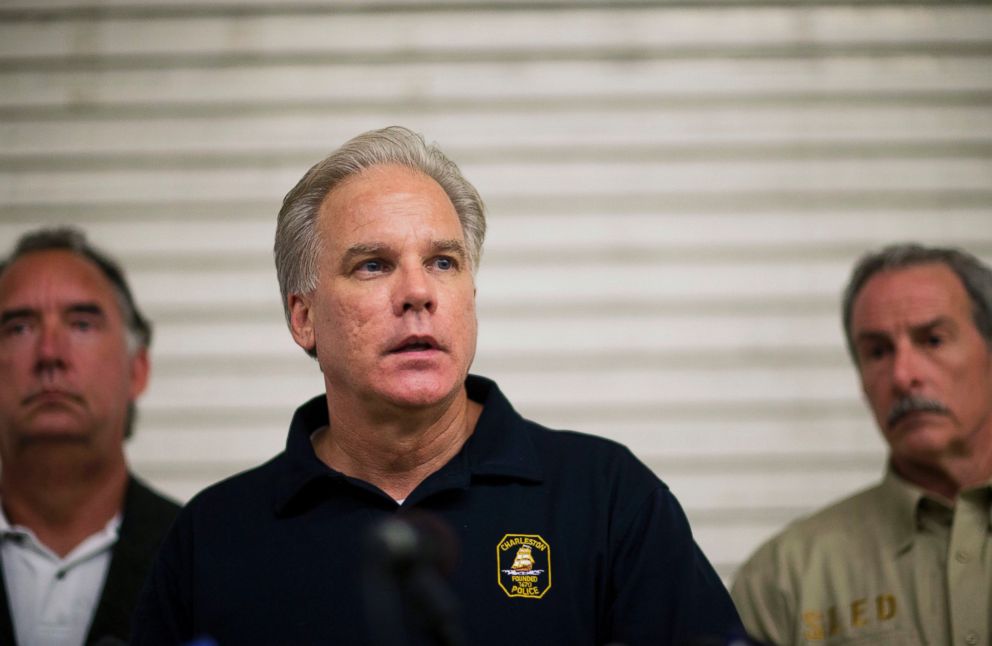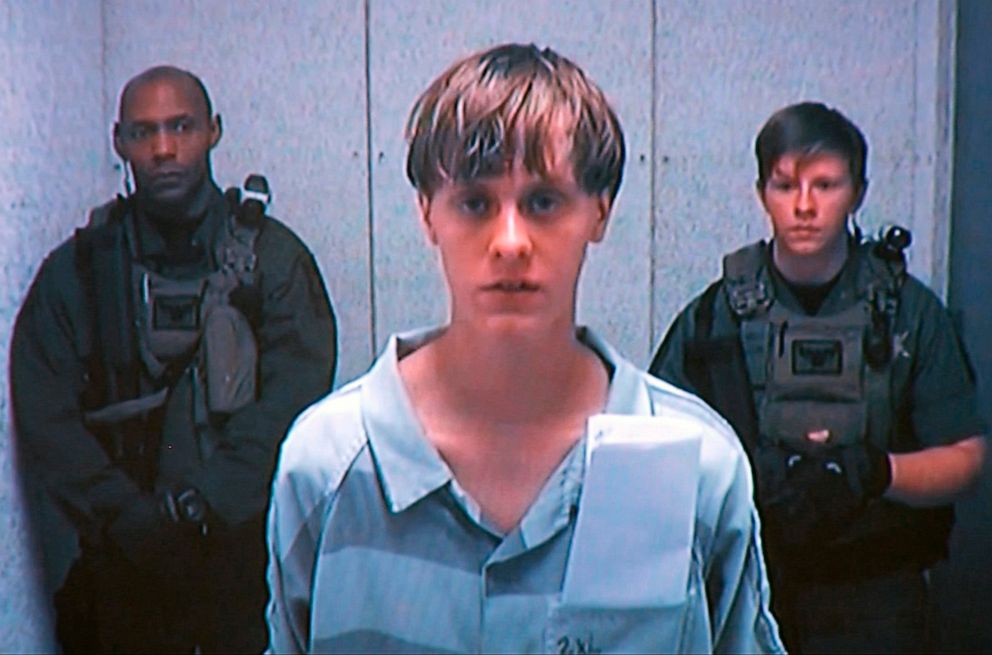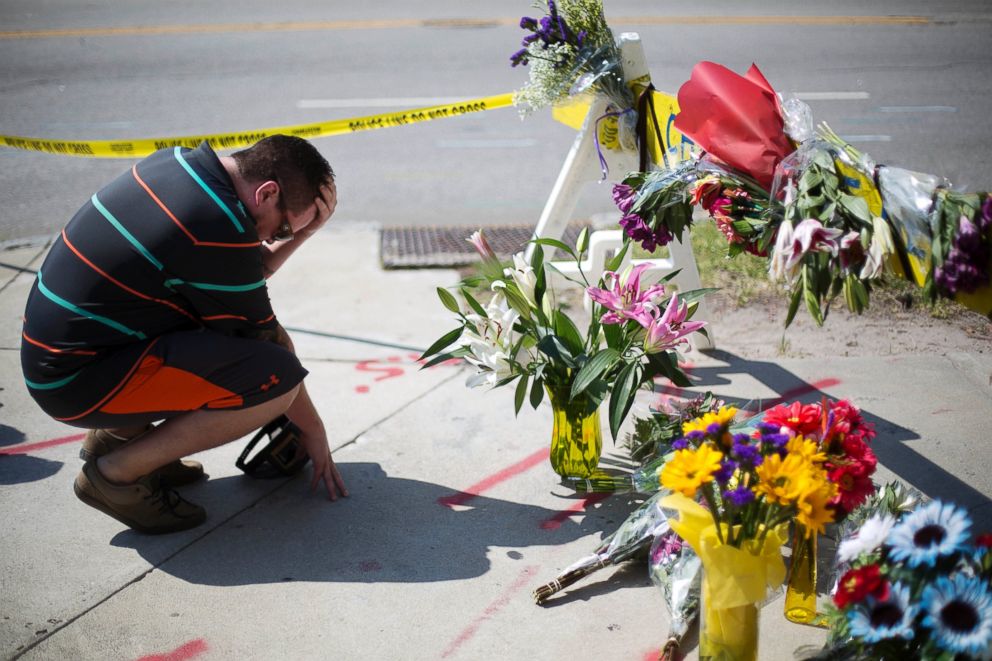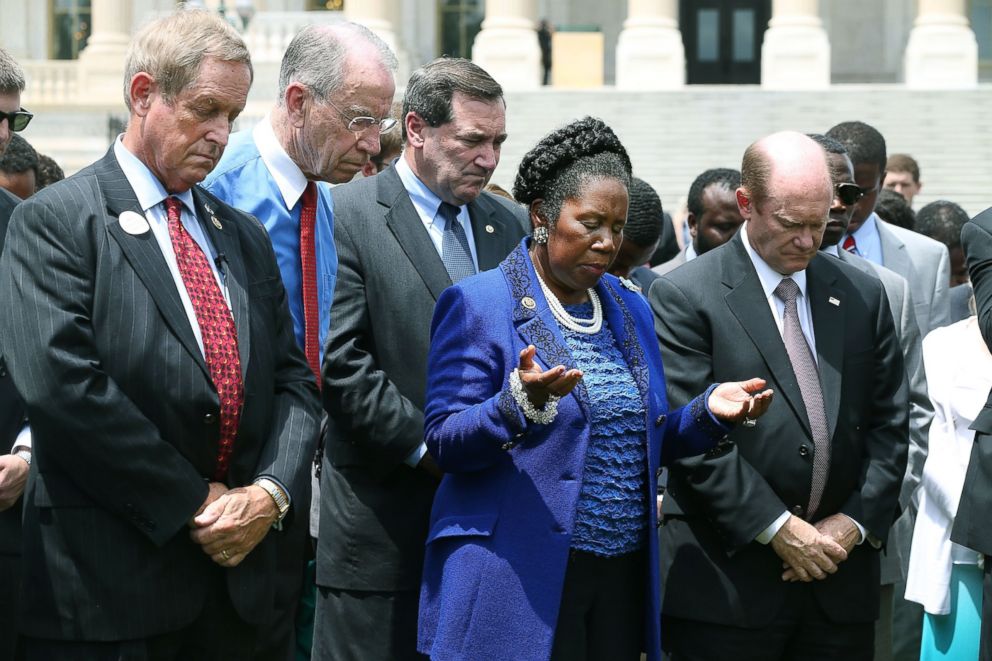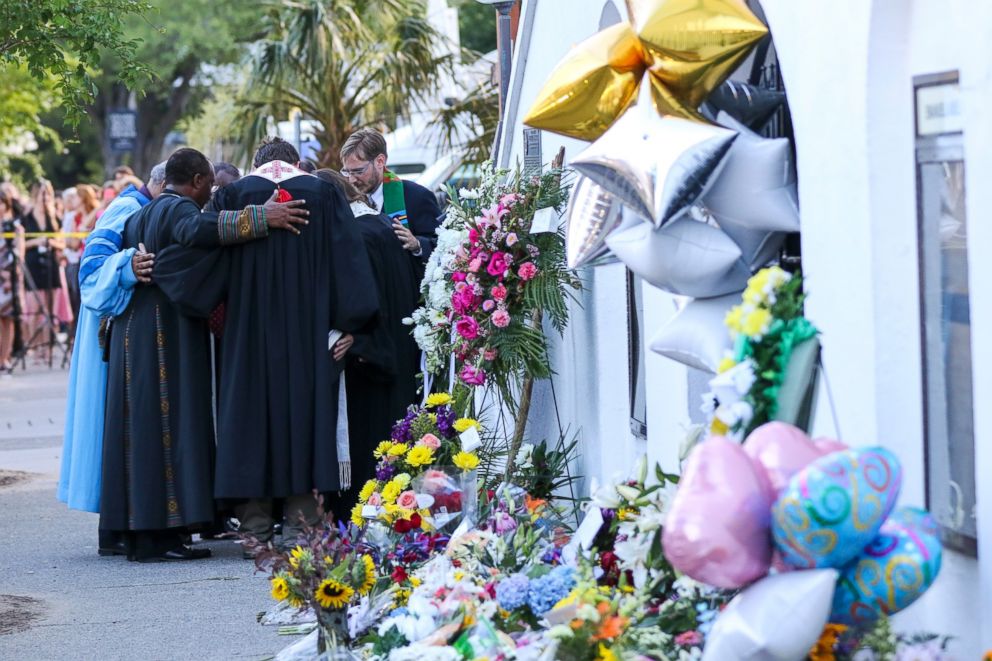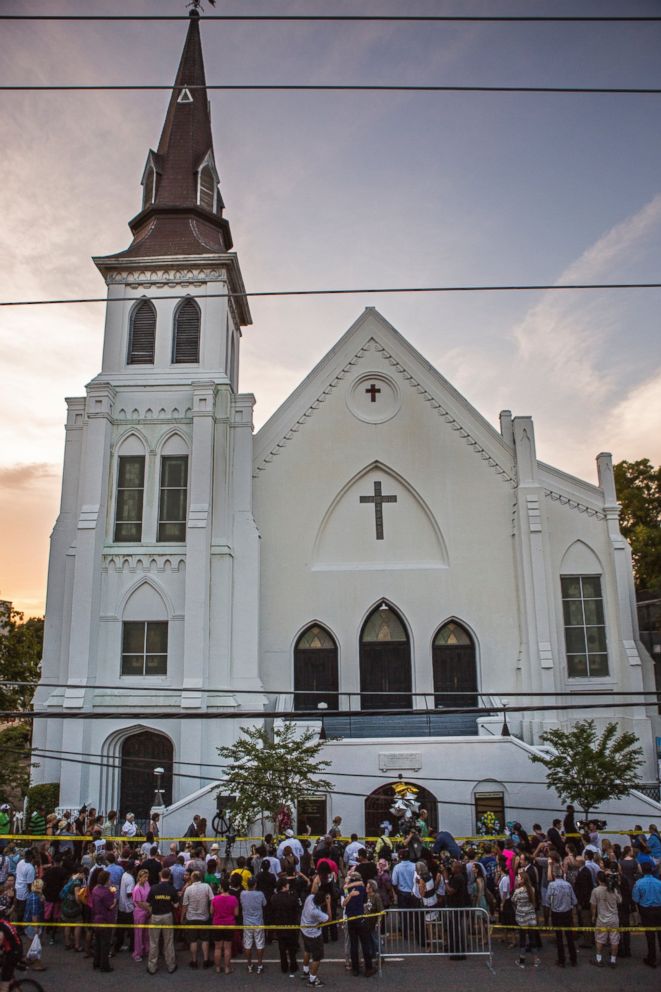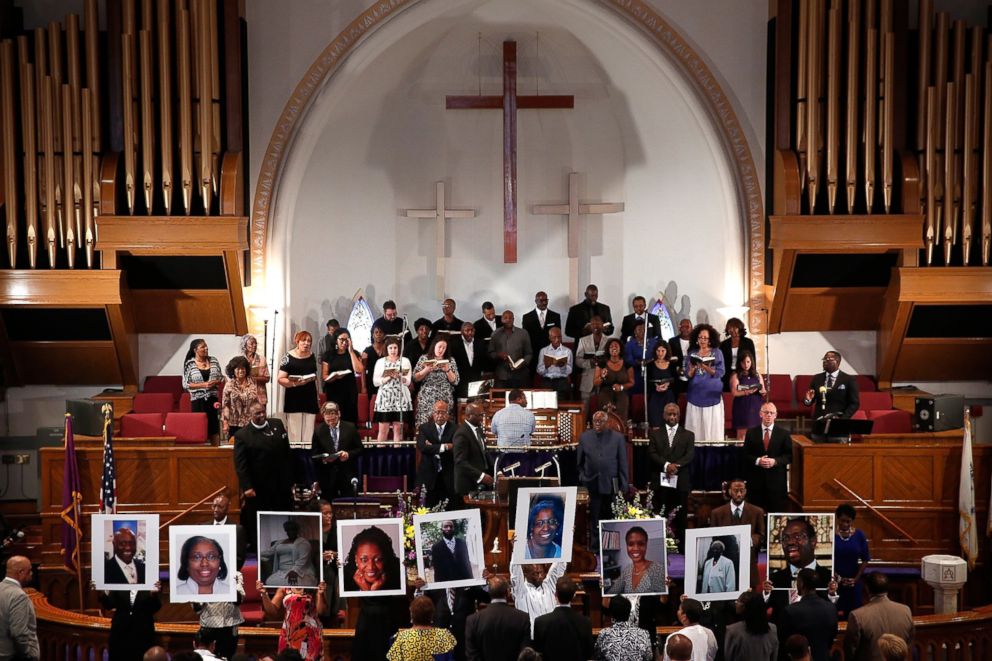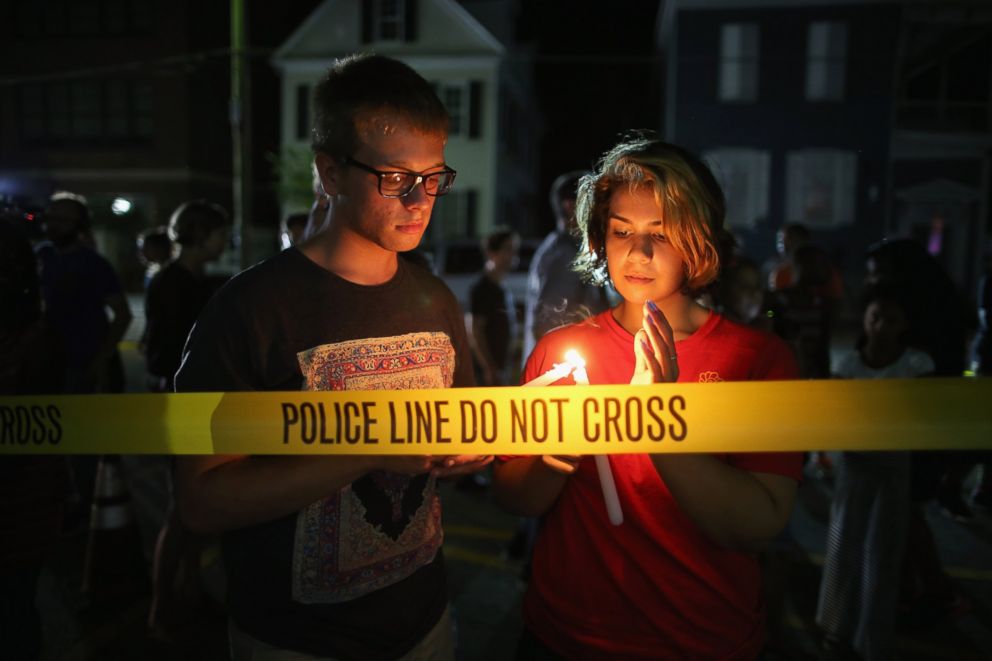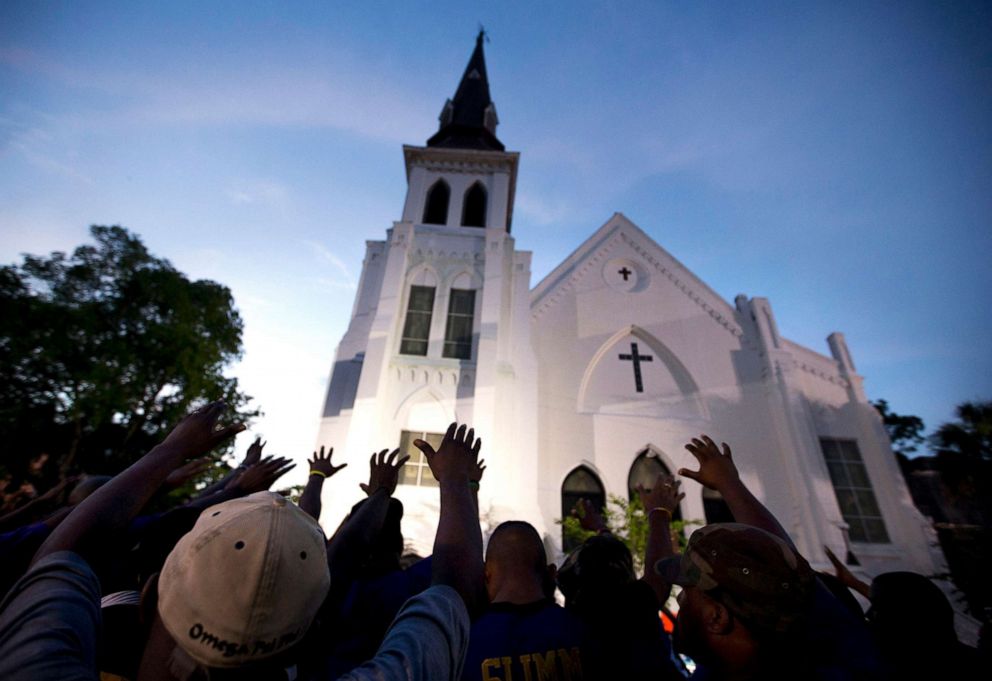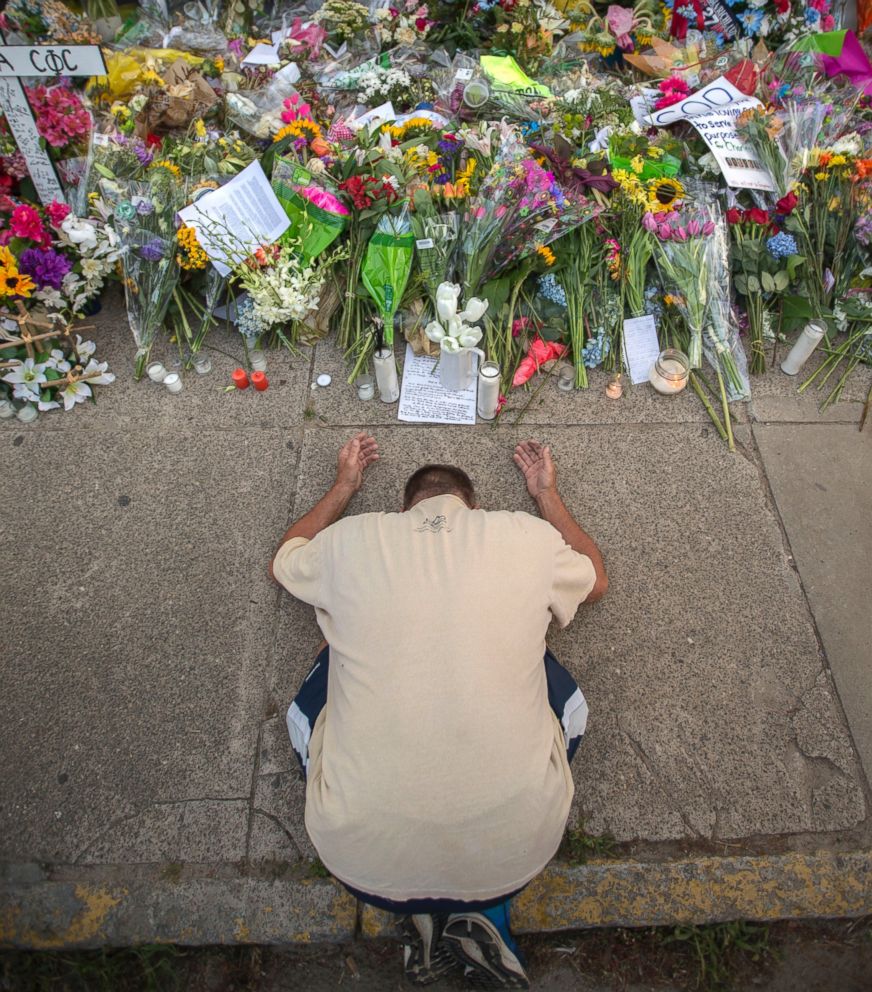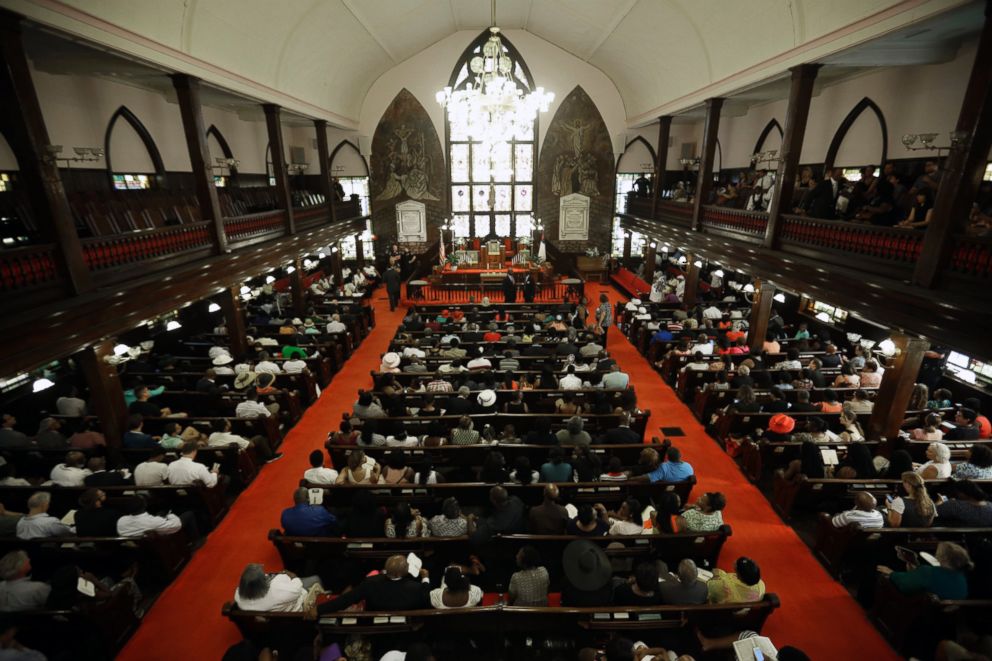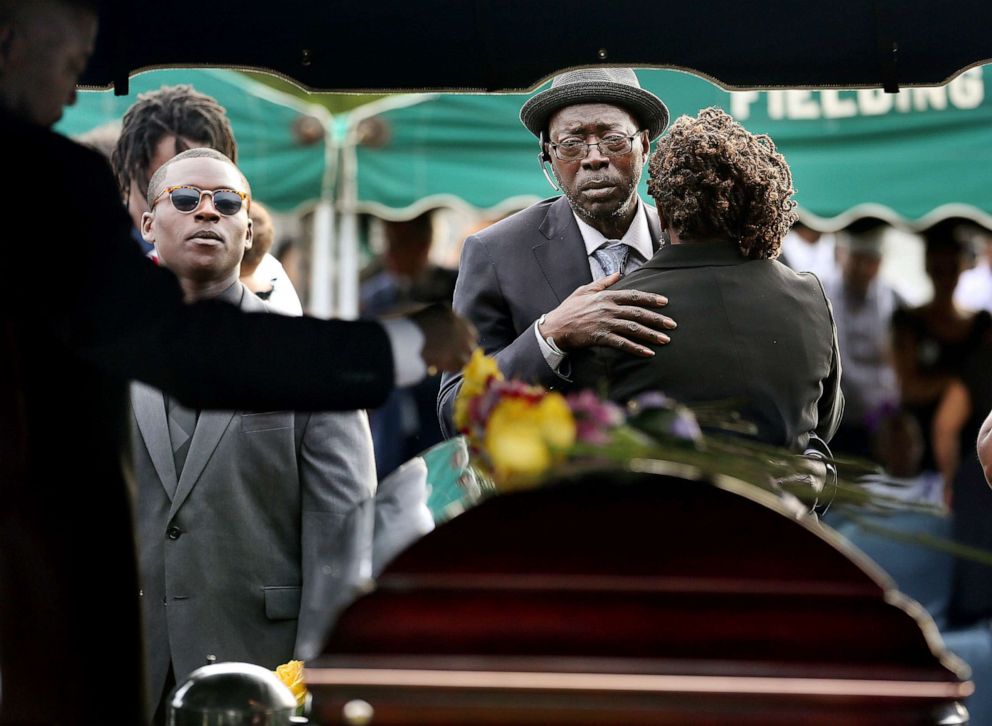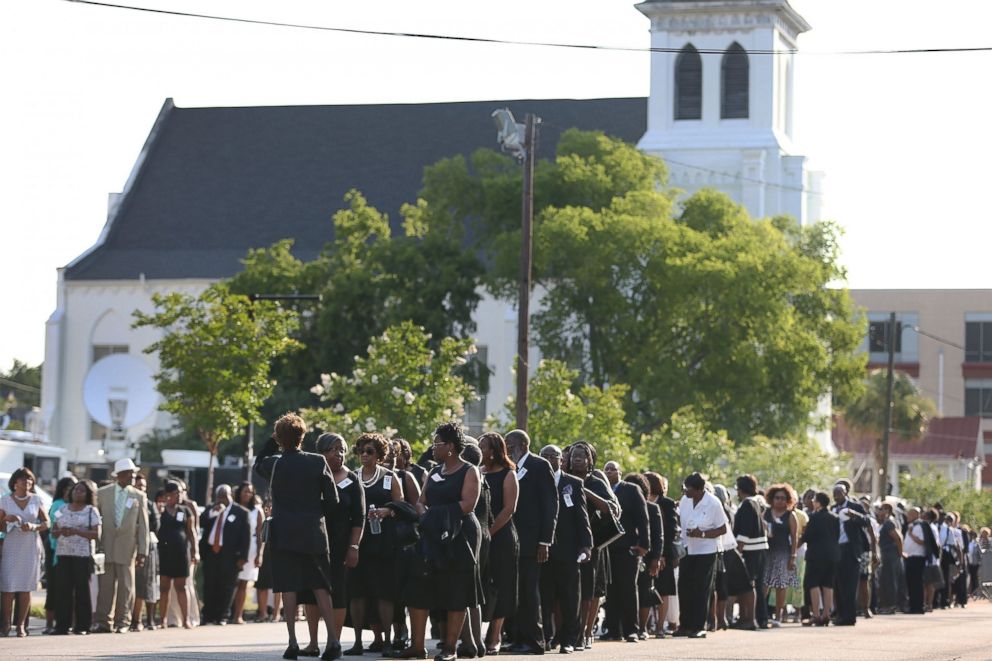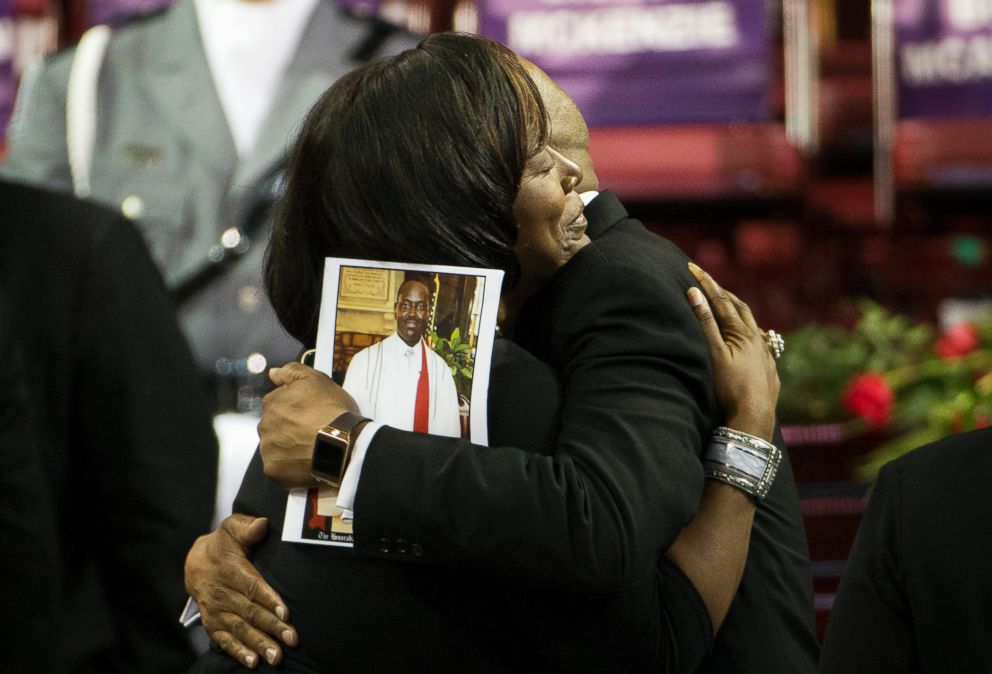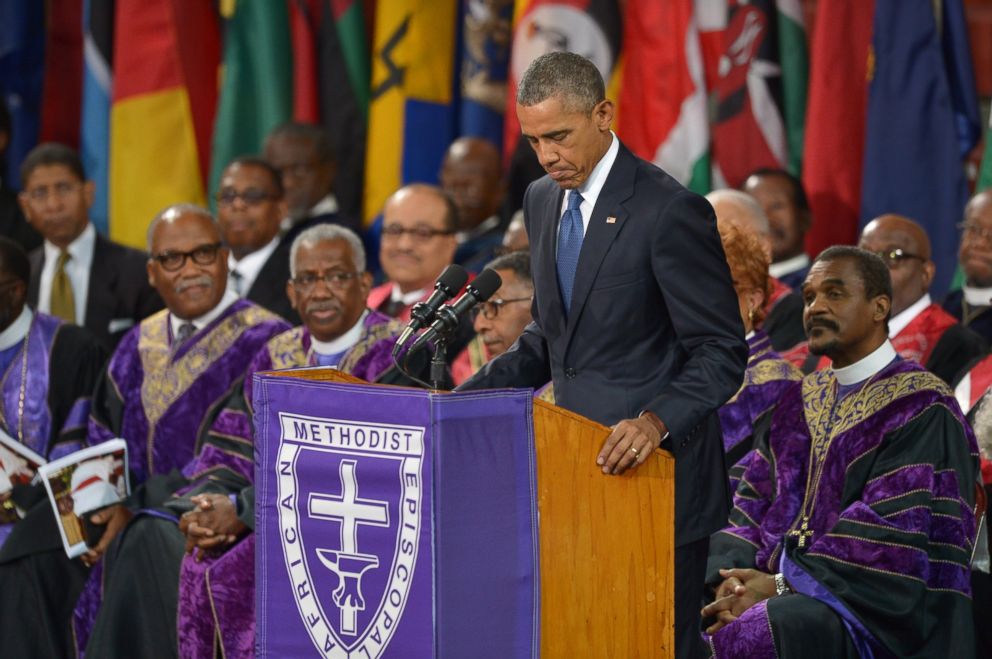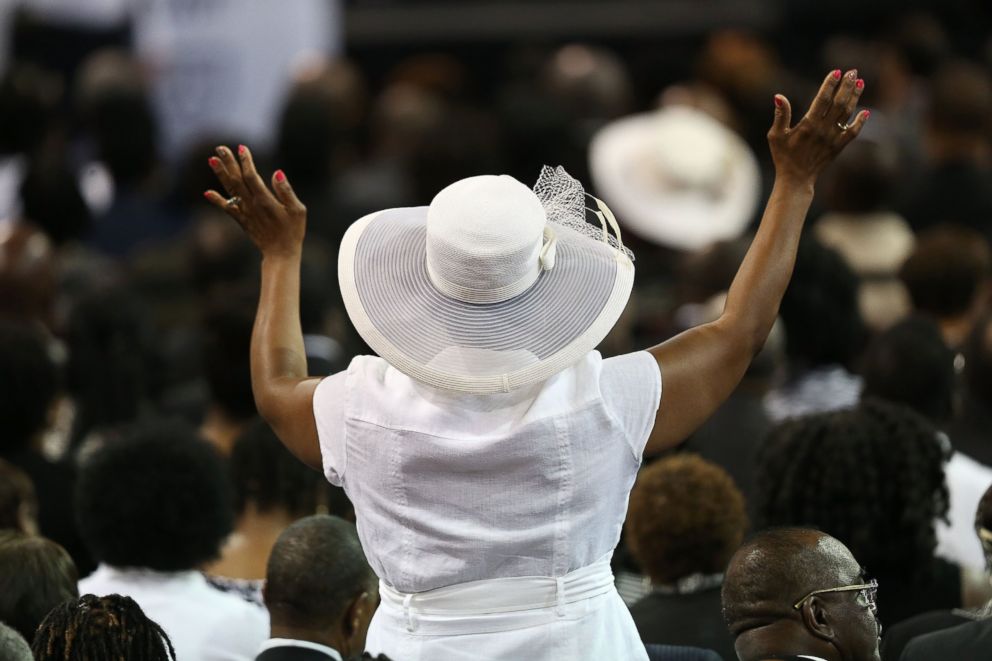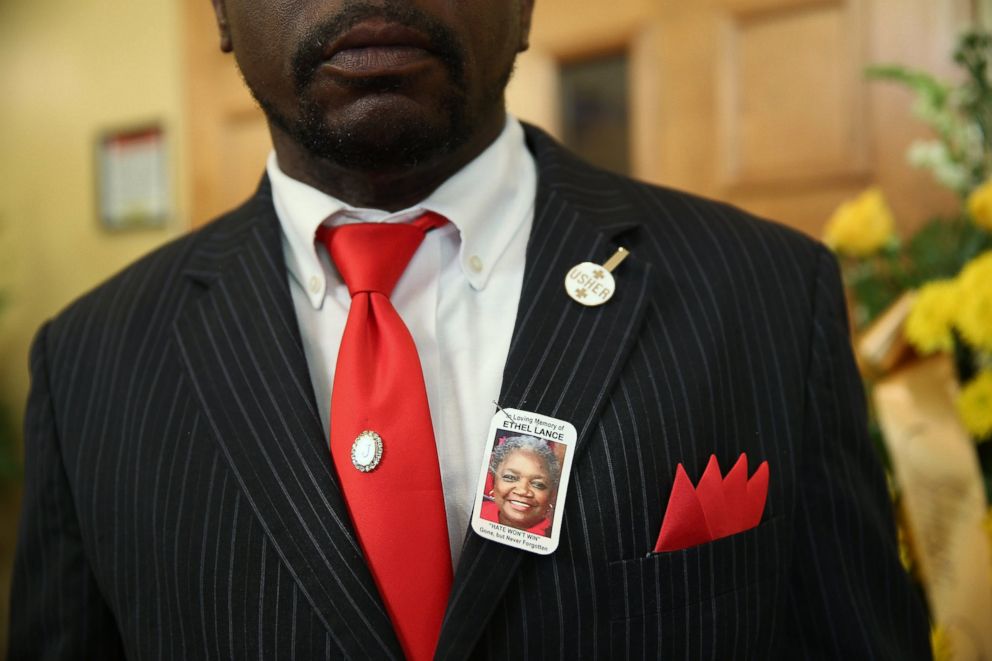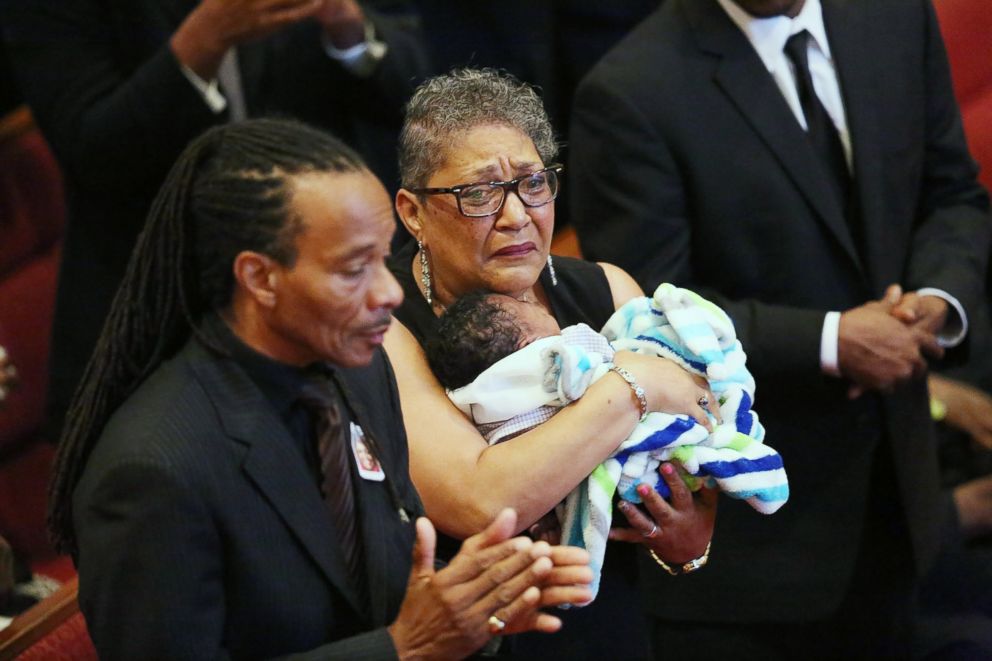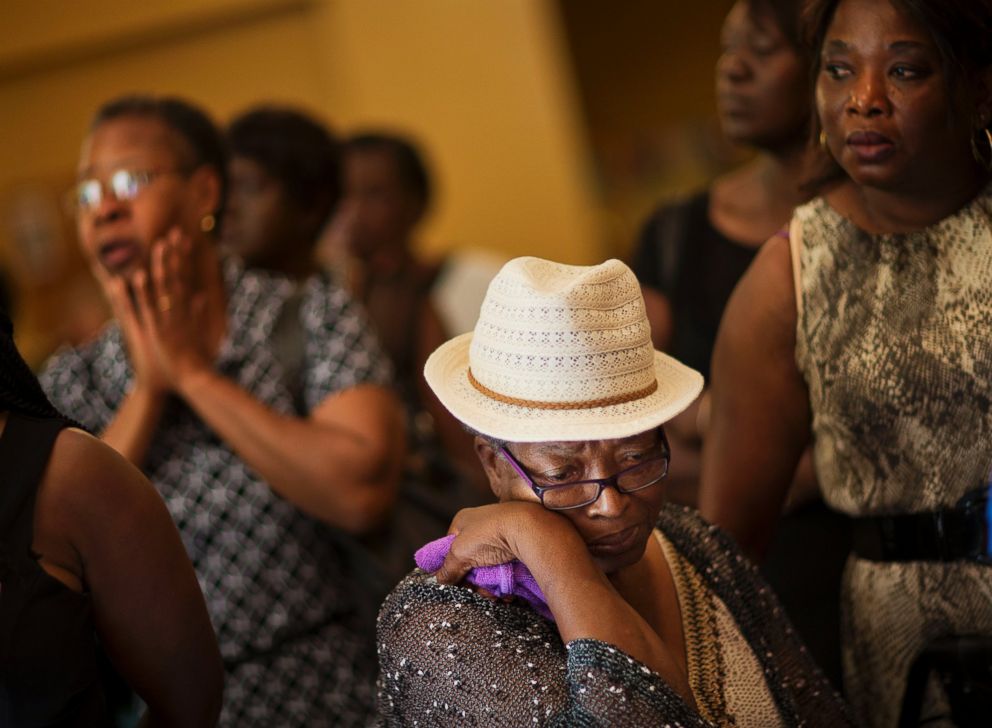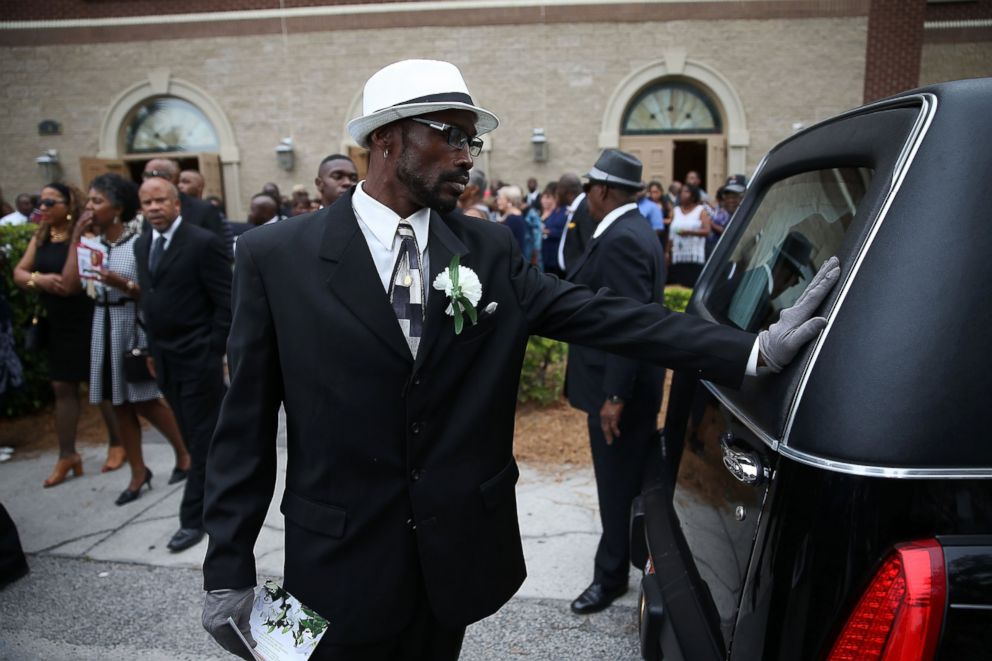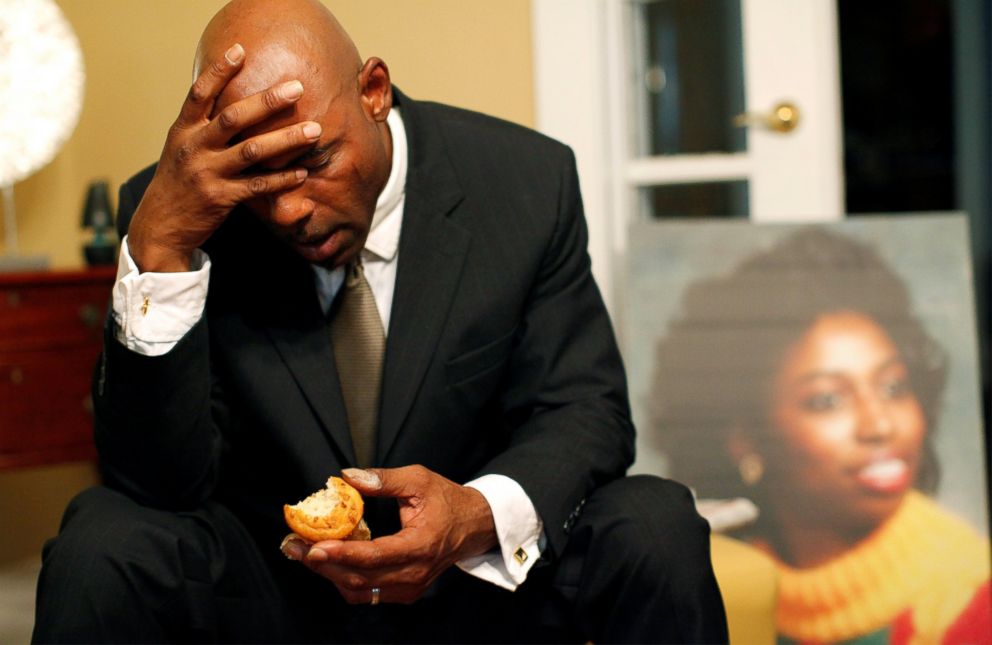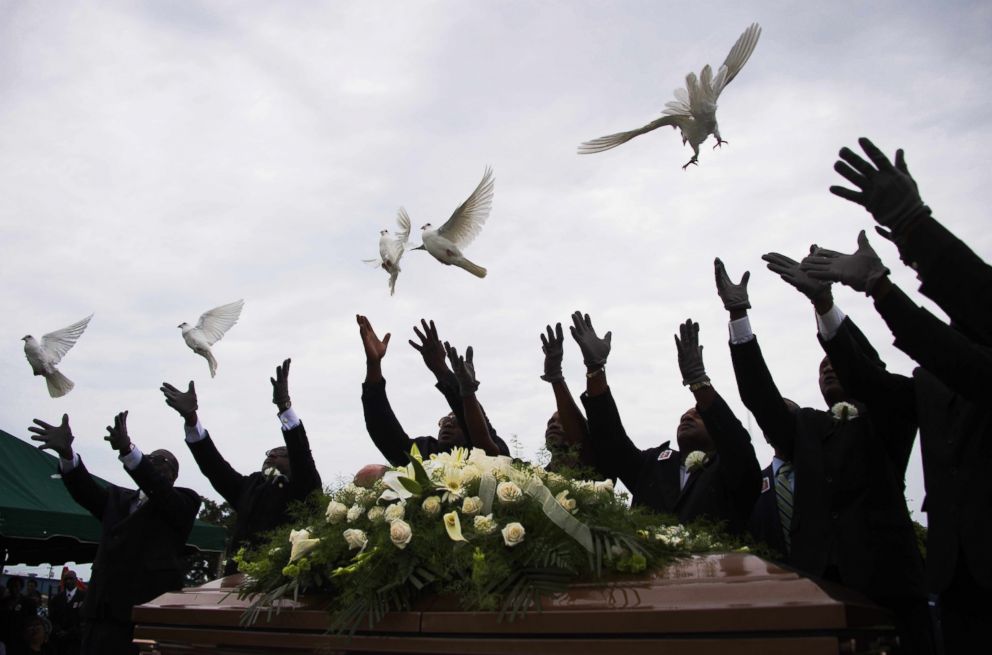Dylann Roof Sentencing: Jurors Cry as Victims' Families Share Stories of Loss
Roof is back in the courtroom for the sentencing portion of his federal trial.
— -- The daughters, sons, sisters and friends of the Charleston church shooting victims shared their tragic stories of loss and grief today with the jurors who will decide whether or not convicted killer Dylann Roof will be sentenced to death or face life in prison. Jurors cried today during the emotional testimony.
Denise Quarles, daughter of slain churchgoer Myra Thompson, told the jury of their close mother-daughter bond. Quarles, who was crying on the stand, said her mother made sure she had everything she needed growing up even though the family didn't have a lot of money. One year Thompson splurged and bought Quarles an Apple computer after Quarles' teacher said she showed an aptitude for technology.
Quarles said she loved talking to her mother on the phone several times a day. She said she still picks up the phone to call her mother, forgetting that she's not there to answer.
"She was the best mom," Quarles told the jury, according to ABC affiliate WCIV. "If I could choose, I would choose her. I miss everything about my mom."
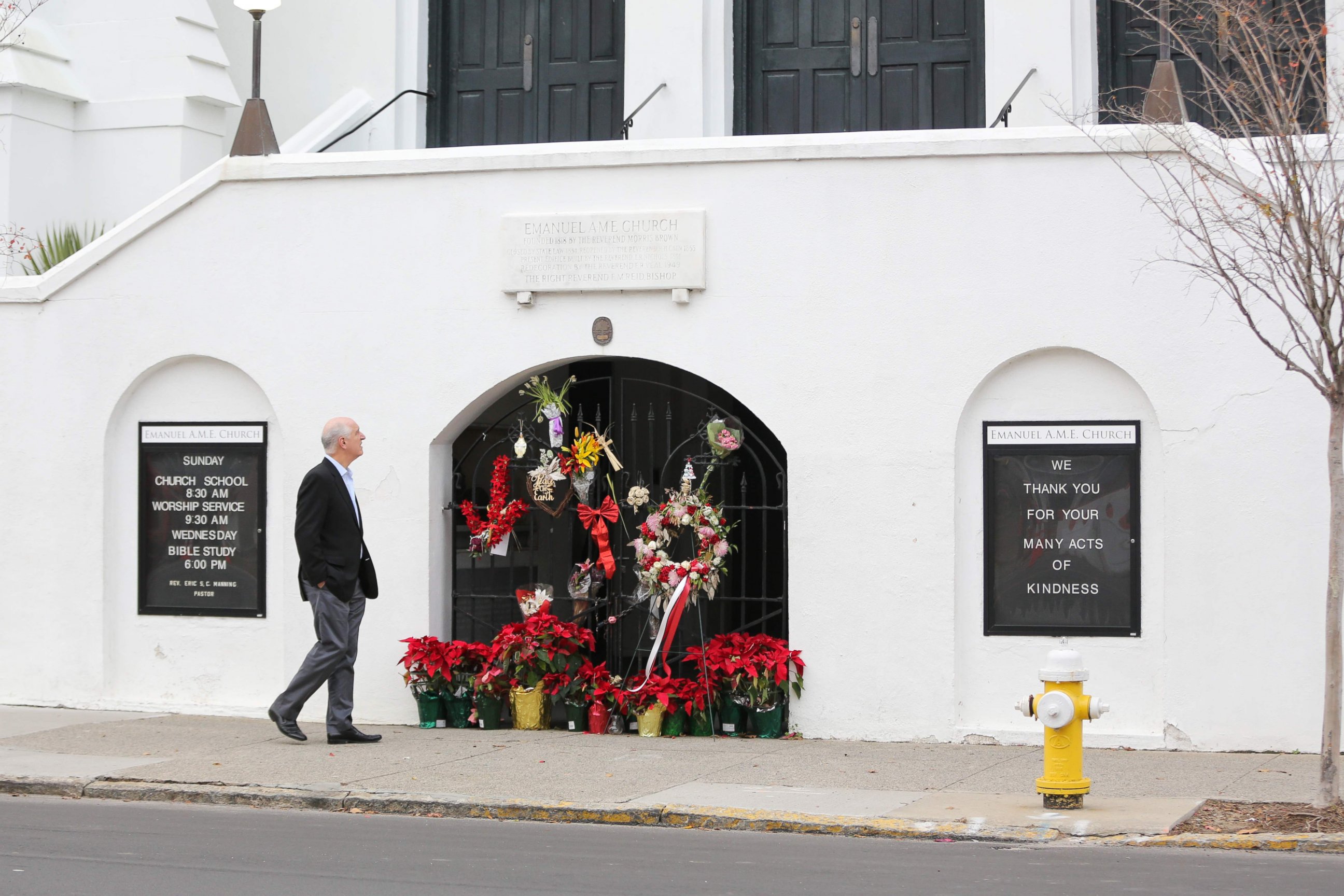
Rita Whidbee, longtime friend of slain Rev. Sharonda Coleman-Singleton, told the jury this morning of her friend's generosity, intelligence and ability to get things done.
Whidbee said when she was getting divorced and living alone for the first time, Coleman-Singleton came to her house with a signed blank check; Coleman-Singleton told her to write whatever amount she needed, WCIV reported.
As a recording of Coleman-Singleton giving a prayer at a funeral was played in court, Whidbee was emotional and also cried on the stand.
Coleman-Singleton's daughter Camryn Singleton told the jury she wishes she could hug her mother again. She said she knew she could go to her mother with anything; she said her mother loved her unconditionally and she could always be herself.
Bethane Middleton, the sister of slain Rev. Depayne Middleton-Doctor, told the jury that Middleton-Doctor was the rule follower and she was the rule breaker. She said her sister guided her and tried to keep her out of trouble.
Middleton said her sister always had a passion for faith and prayer; she said Middleton-Doctor's first sermon was called "The Virtuous Woman," and at the time she didn't realize it was a story of Middleton-Doctor's trials and hardships, WCIV reported.
Middleton said Middleton-Doctor was a strict mother, but loved her children dearly, WCIV reported. Middleton-Doctor attended her daughter's graduation two weeks before the shooting, according to WCIV.
Once Middleton heard about the shooting, she said she was unable to move and cried for two hours. After learning Middleton-Doctor was dead, she tried to call her sister even though she knew she couldn't, Middleton said.
After the shooting, Middleton-Doctor's two youngest children went to live with Middleton.
A look back at the tragic Emanuel AME Church shooting
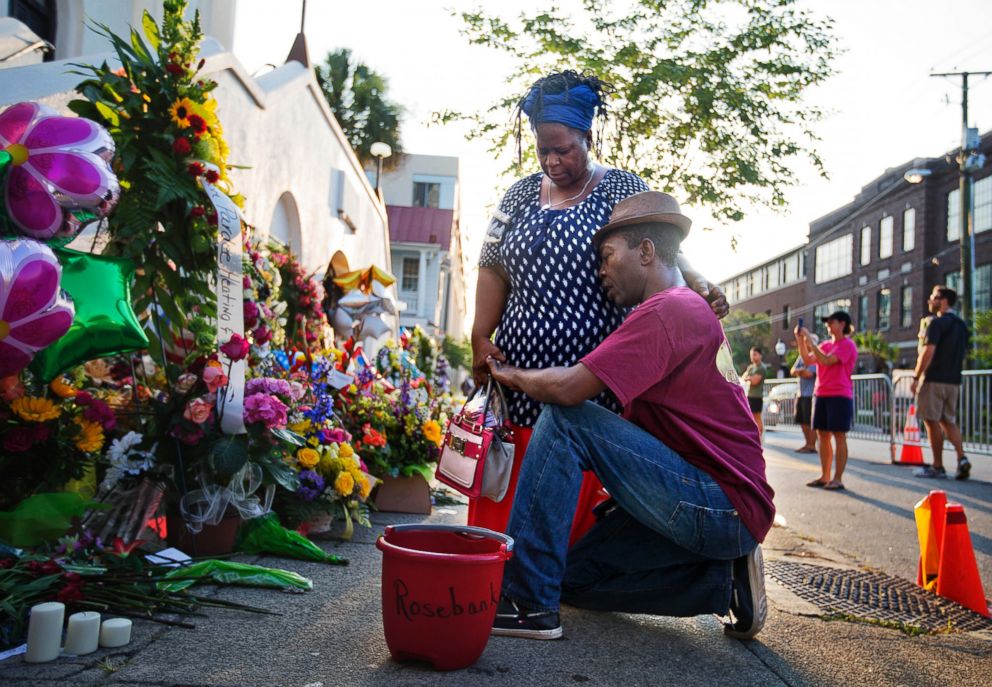
During a break from today's emotional testimony, U.S. District Judge Richard Gergel said there were reports of court officials crying, WCIV reported. Gergel said the testimony is emotional and it's a natural reaction. He added that he would be stunned if the jurors did not cry, WCIV reported.
Assistant U.S. Attorney Jay Richardson walked to the witness box to comfort Middleton as the jury left for lunch.
Roof, who is representing himself for the sentencing phase of his federal trial, spoke for less than five minutes in his opening statement Wednesday, telling the jury there is nothing wrong with him psychologically. Roof did not apologize for his actions.
While Roof's grandparents were in court Wednesday, no family members attended on Roof's behalf today.
Last month, the jury found Roof guilty of fatally shooting nine parishioners at a Charleston, South Carolina, church, in June 2015.
The government is asking the jury to sentence Roof to death. Assistant U.S. Attorney Nathan Williams Wednesday presented a letter in court that Roof penned six weeks after his arrest, in which he wrote in part, "I have not shed a tear for the innocent people I killed."
Roof went to the church that night armed and "with the intent of killing African-Americans engaged in the exercise of their religious beliefs," according to the federal indictment against him. The church members welcomed Roof into their Bible study, according to the indictment, after which Roof drew a gun and opened fire.
A journal-like document found in Roof's jail cell included anti-Semitic and racist language, according to testimony today from Lauren Knapp of the Charleston County Detention Center. The writing said in part: "I did what I thought would cause the biggest wave. ... I have not shed a tear for the innocent people I killed. I do feel sorry for the innocent white people killed at the hands of lower races," WCIV reported.
"White people are pretending... that we are equal," the writing said, according to WCIV. "... Unless we take real and possibly violent action we have no future."
This afternoon, Dan Simmons Jr., son of slain Rev. Daniel Simmons, testified about his father's love of cars, teaching and his family.
Simmons Jr. said his father loved being a grandfather and always called to check up on his grandchildren, WCIV said.
After Rev. Simmons' health forced him to retire, pastor and South Carolina State Sen. Clementa Pinckney -- who was also killed in the church shooting -- asked him to help teach at Emanuel AME Church -- the site of the shooting, WCIV said.
Simmons Jr. said the last time he saw his father, they were working on a car together, talking about Father's Day and planning a trip to Savannah, Georgia, WCIV reported.
Simmons Jr. said he learned about the shooting when his cousin called and told him to turn on the TV; he said he saw his dad on a stretcher on the screen, WCIV reported. At around 5 a.m., his mother called and said his father was taken from the church alive, but he died at the hospital, according to WCIV.
Simmons Jr. said his father "was a protector" and "took a weapon with him every Sunday. I didn't know why he didn't have it with him," WCIV reported. Simmons Jr. said he went to the coroner's office for his dad's keys; when he opened his dad's car door, his gun was sitting on the front seat.
Sen. Pinckney's wife, Jennifer Pinckney, told the jury Wednesday her husband was a loving, devoted and involved father to their two young daughters.
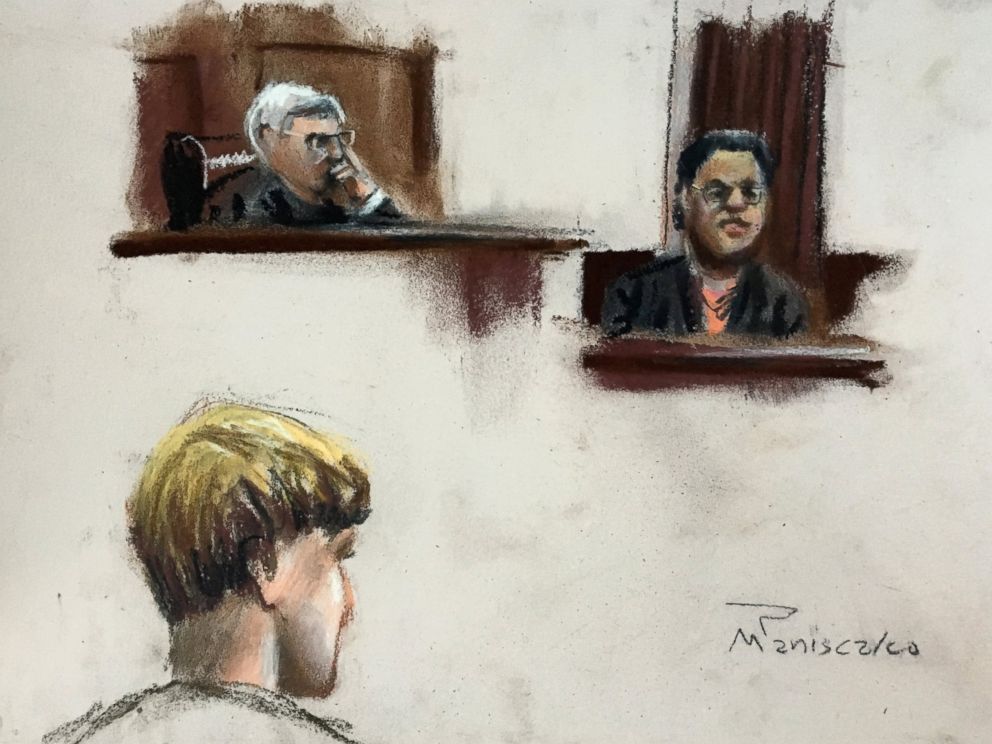
Jennifer Pinckney and their youngest daughter were at the church the night of the shooting; they were in an office while her husband was at the Bible study. She told the jury how she and her daughter hid under a desk as gunshots rang out; she said they put their hands over each other's mouth.
Jennifer Pinckney testified that she heard Roof say he was not crazy and had to do this. She said Roof tried to open the door to where she was, but it was locked.
She said the hardest thing she ever had to do was tell her 6-year-old and 12-year-old that their father had been killed.
Defense attorney David Bruck told the court last month, "He did it ... You're probably wondering, so what we are doing here? Why does there need to be a trial? ... The practical reason is that the government has asked for the death penalty after conviction, and because of that, we have a procedure to go through.”
"Our society does not order the death penalty if there are reasons to choose life," Bruck added. "You're going to want to understand who this person was and why on earth he would want to cause so much grief."
Roof also faces a state trial in which he may again face the death penalty. The state trial, which was scheduled to begin this month, has been delayed indefinitely.
